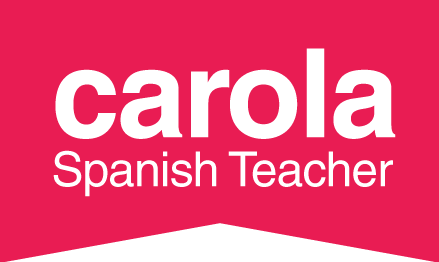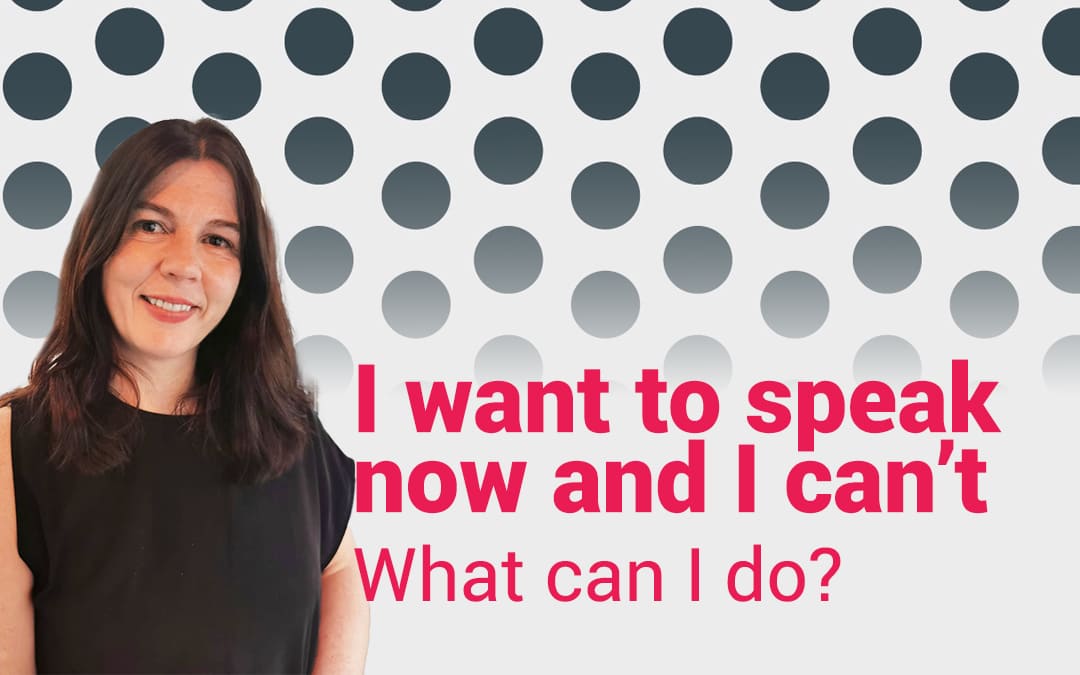If you’ve started learning Spanish, it’s completely normal to feel impatient.
You want to speak now, have real conversations, express yourself freely… and when that doesn’t happen right away, it can be frustrating.
But before you give up or think something is wrong with you, there’s one important thing to understand:
📚 In language learning, we work with two main types of skills:
🟦 Passive (receptive) skills
These are the skills you use to understand the language. You don’t need to say anything, just receive the information and make sense of it.
- Listening → understanding what people say in conversations, TV, music…
- Reading → understanding written language like texts, emails, signs, menus…
🟦 These skills usually develop first, especially in the early stages of learning.
And that’s not a bad thing — it’s part of a natural process.
🟩 Active (productive) skills
These are the skills you need to produce the language: when you’re the one talking or writing.
- Speaking → having conversations, asking questions, giving opinions…
- Writing → writing messages, emails, or short texts…
🟩 These skills take more time and require more mental effort, because you need to:
- Think about what you want to say
- Choose the right vocabulary
- Use correct grammar
- Pronounce (or write) words correctly
All of that happens in real time — and that’s not easy at first.
Why do passive skills come first?
- There’s less pressure
You don’t have to produce anything — you just listen or read and try to understand. - You’re exposed to more language
In class you hear Spanish all the time, you read words on the board, you see vocabulary in exercises or images. That constant input helps your brain absorb the language naturally. - It’s how we all learned our first language
Think about babies — they listen for months before they say their first word. And they only start speaking after they’ve heard hundreds (or thousands!) of words.
So yes — understanding usually comes before speaking, and that’s completely normal.
🧩 A real-life example:
A beginner might understand the question:
“¿Dónde vives?” (Where do you live?)
But when it’s time to answer… the mind goes blank! 😅
Or they might read a sentence in Spanish and know what it means…
But if you ask them to write a similar sentence themselves, they struggle.
This is not a sign of failure.
It’s just that your passive vocabulary is growing faster than your active vocabulary — and that’s a good thing! It means your brain is working and storing information.
🛠 What about active skills? Why do they take longer?
Because they involve:
- Choosing the right words from your memory
- Building a sentence with correct grammar
- Pronouncing or writing the words clearly
This process takes time and practice — just like learning to ride a bike or play an instrument.
You can understand music before you can play it, right? Languages work the same way.
💡 But don’t worry: with regular practice, these skills will improve.
🧠 Simple summary:
👉 First, we understand (passive skills)
👉 Then, we speak or write (active skills)
And this is true for everyone — no matter your age, background, or level.
So if you feel frustrated because you “can’t speak yet”, remind yourself:
You’re not behind — you’re just in the early phase.
🎯 Trust the process. Your brain is learning, even when you’re not speaking yet.
Keep listening. Keep reading. Keep going.
Speaking will come.

